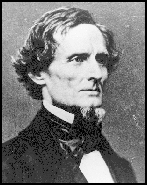He began by paying a warm tribute to the gallantry the Confederates displayed on the bloody field of Chickamauga, defeating the largely superior force of the enemy, who had boasted of their ability to penetrate to the heart of Georgia, and driving them back, like sheep, into a pen, and protected by strong entrenchments, from which naught but an indisposition to sacrifice, unnecessarily, the precious lives of our brave and patriotic soldiers, prevented us from driving them. But, he said, they had given still higher evidence of courage, patriotism, and resolute determination to live freemen, or die freemen, by their patient endurance and buoyant, cheerful spirits, amid privations and suffering from half-rations, thin blankets, ragged clothes, and shoeless feet, than given by baring their breasts to the enemy.
He reminded them that obedience was the first duty of a soldier, remarking that when he was a youth a veteran officer said to him: "My son, remember that obedience is the soldier's first duty. If your commanding officer orders you to burn your neighbor's house down, and to sit on the ridge-pole till it falls in, do it." The President said, this is an exaggerated statement of the duty, but prompt, unquestioning obedience of subordinates to their superiors could not be too highly commended. If the subordinate stops to consider the propriety of an order, the delay may derange the superior's whole plan, and the opportune moment for achieving a success or averting a defeat may be irretrievably lost.
He alluded to the boast of our enemy that, on the occupation of East Tennessee, they would heavily recruit their army and subjugate us with the aid of our own people; but the boast had not been fulfilled. He said the proper course to pursue towards the misguided people of East Tennessee was, not to deride and abuse them, but to employ reason and conciliation to disabuse them of their error; that all of us had once loved and revered the old flag of the Union; that he had fought under its folds, and, for fifteen years, had striven to maintain the Constitution of our fathers in its purity, but in vain. It could not be saved from the grasping ambition for power and greed of gain of the Yankees, and he had to relinquish it. The error of the misguided among us was, that they clung longer than we to what was once a common sentiment and feeling of us all, and, he repeated, they must be reasoned with and conciliated.
In closing, he expressed his deep conviction of our eventual success under the blessing of Providence, and expected the army of Tennessee, when they should resume active operations, not to pause on the banks of the Cumberland, but to plant our banners permanently on the banks of the Ohio.--This, he believed, would be done. As the humble representative of the people he returned their grateful thanks to the army of Tennessee for what they had already accomplished, and fervently invoked the blessing of Almighty God upon all officers and men comprising it.
